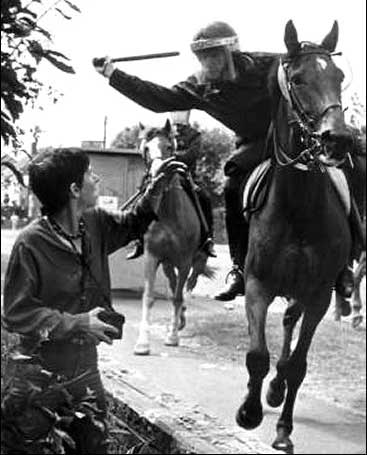Trust
Society cannot function without trust. Of course, this implies that there is such an entity as society. Not everyone accepts that there is. Former British prime minister, Margaret Thatcher (1925 – 2013) stated in an interview in Women’s Own in 1987, “They are casting their problems at society. And, you know, there’s no such thing as society. There are individual men and women and there are families. And no government can do anything except through people, and people must look after themselves first. It is our duty to look after ourselves and then, also, to look after our neighbours.”
Thatcher’s understanding of the world differs from my perception of it. However, she is not alone. I do appreciate that she was the first British prime minister with a science degree, which she regarded as more important than being the first of her gender. However, with only individuals optionally organized into some sort of reproductive unit, I am not quite sure how her world view could equip Britain to organize economic production, yet alone fight wars in the Islas Malvinas.
Her admiration for Friedrich Hayek, and his Road to Serfdom does fit in with her economic policies, including the imposition of a community charge ( a poll or head tax), first in Scotland, then in England and Wales, to replace the rates system based on the market value of one’s residence.
Thatcher’s economic policies emphasized deregulation, especially in the finance markets but also extending into labour markets accompanied with the reduction of the power and influence of trade unions, the privatization of state-owned enterprises from British Gas and British Telecom, even waterworks and atomic energy providers as well as railways and airlines.
While Britain’s economy expanded under Thatcher, the prosperity of the rich was paid for by millions of working class people, with bitter social divisions. The City of London financial district reorganized, eliminating safeguards, but bringing riches to an elite. Yuppies, short for Young Upwardly-mobile Professionals, made huge bonuses in finance but contributed little or nothing to society.
Coal miners lost their jobs as mines closed, and were attacked by police if they went on strike. By February 1984, two million manufacturing jobs had been lost. Coal was increasingly imported from Australia, Colombia and Poland. Many power stations had converted to gas. Much of the railway coal transport had been replaced by small haulage contractors’ trucks. Power station workers and police had been given large pay rises just before the strike. For more information see: http://www.leftcom.org/en/articles/2014-02-26/30-years-on-the-miners-last-great-strike-today

At times Thatcher appears to have modern values such as decriminalization of abortion and homosexuality. At the same time she wants to reimpose capital punishment.
From a trust perspective, Thatcher appears to have chosen to trust certain classes of people, such as bankers, but not others, such as coal miners. She trusts those close to her background, but is reluctant to trust those diverging from her personal experience.
It is left to the reader, as a personal and ungraded exercise, to examine the consequences of this failure to trust, and to draw lines to today’s situation in the US and Britain, with their isolationist policies.

